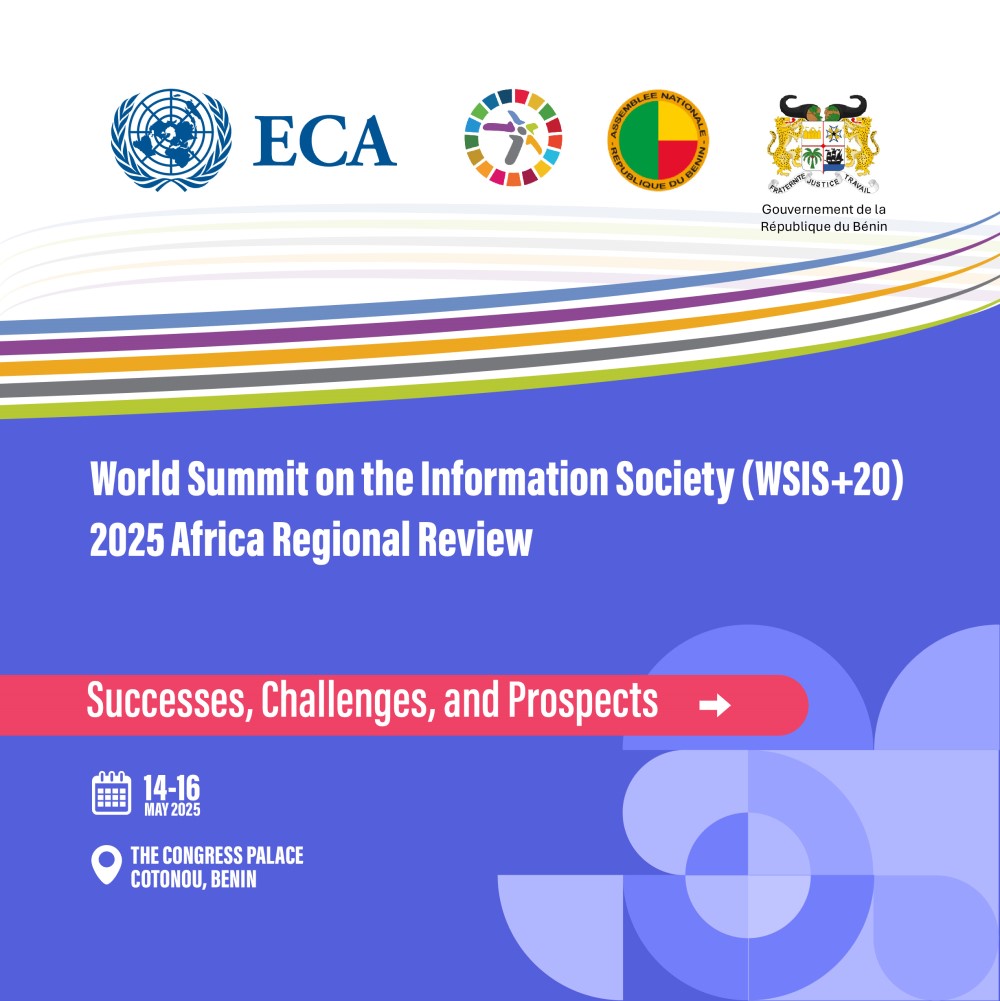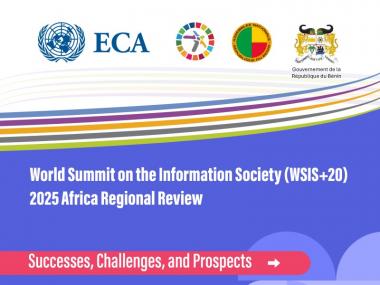
Cotonou Declaration on Accelerating the Digital Transformation of Africa
Introduction
The Economic Commission for Africa (ECA), in collaboration with the Government and the National Assembly of the Republic of Benin and other key stakeholders, will organize the 2025 Africa Regional Review of the World Summit on the Information Society (WSIS+20) from 14 to 16 May 2025 at the Congress Palace in Cotonou, Benin. This hybrid event will gather stakeholders from across the continent to reflect on Africa’s digital transformation over the past two decades and help shape a unified regional position ahead of the global WSIS+20 High-Level Meeting in July 2025.
Objectives
- Evaluate progress on WSIS implementation across Africa.
- Identify challenges and opportunities related to emerging digital technologies.
- Shape a unified African position aligned with the Global Digital Compact.
- Strengthen multi-stakeholder partnerships for inclusive digital development.
- Contribute African perspectives to the global WSIS+20 review process.
For registering for both in-person and online participation, please use the following link: https://zoom.us/webinar/register/WN_UIsyUlmZQte2wGGH-OAx8g
Documents
- Concept Note
- Provisional Programme of Work
- Note to Participants
- Cotonou Declaration on Accelerating the Digital Transformation of Africa
- WSIS+20 Review Meeting Report
- ECA Report on the WSIS+20
Speeches
- Remarks from Ms. Liping CSTD Secretariat
- Opening remarks by H.E. Ambassador Muhammadou M.O. Kah, Acting Chair of the CSTD
- Remarks by the Director General of Smart Africa
Presentations
Session 1 – Global Initiatives to Advance the Information Society and Drive Digital Transformation
- CSTD consultation on WSIS+20
- The Global Digital Compact and Governance of AI (Isabel de Sola Criado)
- The Netmundial+10 Multistakeholder Statement: A Roadmap for Inclusive Internet Governance - Jimson Olufuye
Session 2 - Presentation of the Africa WSIS+20 Report
Session 3 - WSIS Action lines implementation at the national level & alignment of the WSIS and SDG processes and AU 2063 Aspirations
Country Presentations on the WSIS implementation
- Accelerating digital transformation in Tanzania
- Actions entreprises par la République Démocratique du Congo (RDC) dans le cadre de la mise en œuvre des lignes d’action du Sommet mondial sur la société de l’information (SMSI)
- Ghana presentation
- Mise en oeuvre des lignes d’action SMSI (Sommet Mondial de la Société de l’Information) au niveau national et alignement avec les ODD et les aspirations de l’Agenda 2063 de l’Union Africaine - Bénin
- Mozambique presentation on the implementation of the WSIS : results, challenges and perspectives
- Le numérique au Maroc : des perspectives et des défis
- Le numérique, support des industries : cas de l’électricité - Côte d’Ivoire
- Présentation du Tchad
- Towards an Inclusive Egyptian Information Society WSIS+20 Review
- Uganda’s Digital and Energy Transformation
- Zimbabwe presentation
Session 4 - WSIS challenges, opportunities, and emerging trends
- Bridging the Digital Divide through Academic Leadership
- Défis, opportunités et tendances émergentes de la société de l'information
Session 5 - Data Governance in Africa
Session 7 - Continental and regional programmes: Digital cooperation and harmonization
- WSIS + 20 : An ICANN Perspective - Pierre Dandjinou
- Global framework for Digital Product Information Systems-UNEP
- The e-Governance Knowledge Sharing Program



